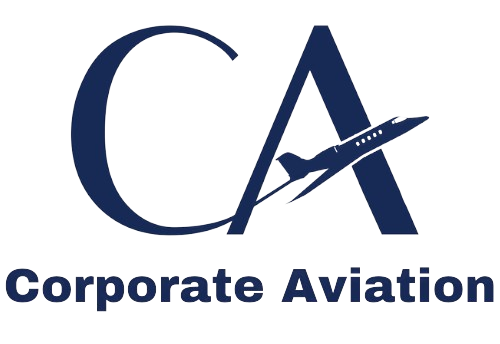We’re off to a great start to 2024 Q1 and it’s time to up the ante on your business or corporate travel plans for the year. There’s no better way than to fly private! There’s no doubt you’ve heard about all the benefits of private jet travel: the time savings, the convenience, the privacy. Great! These are the things we’re drawn to when considering private air travel. Let’s say you’ve even gone a step further and you’ve done your industry research, and found a trustworthy private jet consultant, like Corporate Aviation. You may even know some industry buzz words like ARGUS or WYVERN. These are all the right steps to introduce your team to private jet travel. However, to make it a truly worthwhile and safe investment for you or your organization, you must take a deeper look into the specific “behind the scenes” safety details of every private jet flight. For corporate jet travel – ask these important safety questions:
“What can you tell me about your company Safety Management System (SMS)? How long has your SMS been in place?”
The FAA and the air charter industry are constantly working together to improve flight safety across the board. One of the most impactful strategies is to ensure each operator develops and utilizes a Safety Management System (SMS). A fully functional SMS is designed to develop and improve policies and procedures, analyze feedback and data from flight operations, and identify and mitigate risk. Safety Management Systems have been in the aviation industry for quite some time, becoming “industry standard” over the last couple of decades. However, only until just recently has the FAA officially mandated the use of one in charter flight operations. Asking about SMS and how long the charter operator has used one can tell you a lot about the role safety plays in that organization and ultimately, your flight.
“Has the aircraft operator been audited by a third-party regarding safety and compliance? Which third party and when was your last successful audit?”
If you’ve researched or heard about ARGUS and WYVERN – you’re off to a great start. If you haven’t or if you don’t fully understand these organizations, it’s vital to know their importance, and limitations in air charter safety. Much like SMS had become industry standard over the last couple of decades, third-party audit standard agencies like ARGUS, WYVERN, IS-BAO, IBAC have become commonplace in the air charter industry. In an effort to increase safety and standardization, these organizations develop air charter operating standards such as operational policies, crew experience, and aircraft history that must be met or exceeded to achieve certification. When asking about these certifications, be sure to ask by whom, the date of their last audit and if their records are up to date with these agencies. But buyer beware: don’t be too quick to trust your safety solely on an industry-recognized certification. It may look nice on paper, but that’s all it is: a successful audit of whatever is written on paper. To be truly safety-savvy, you’ll have to dig deeper.
“What steps does your organization take to assess and mitigate risk on each flight?”
We’ve now investigated SMS and third-party audits. Perhaps you found that your intended operator has a fully functioning SMS and all the third-party audit certifications to go with it. Having insight on these lay a nice foundation for assuring flight safety on your private jet charter. However, it is vitally important to find out if the charter operator will actually practice what they preach. Any safety conscious organization is acutely aware of the potential risks involved with a particular flight and ensure that their crewmembers are empowered to assess and mitigate these risks properly. By asking about risk mitigation strategies for topics such as weather, crew experience, and airport or air traffic issues, you’ll understand how and to what extent each company assesses risk to best keep you and your most valuable assets safe.
Know before you go:
Every truly successful private jet charter experience starts and ends with safety. By asking a few simple questions at the beginning, you can save yourself the worry, hassle, or simple frustration later on. Remember, private jet travel isn’t just about comfy seats and caviar. Make sure to dive a little deeper into the “who/what/how” of each operation and generate a better understanding of their organization. A little bit of preparation goes a long way to best ensure the safety of you and your company.
By: John Gabriel
Director, Safety and Compliance
Corporate Aviation
